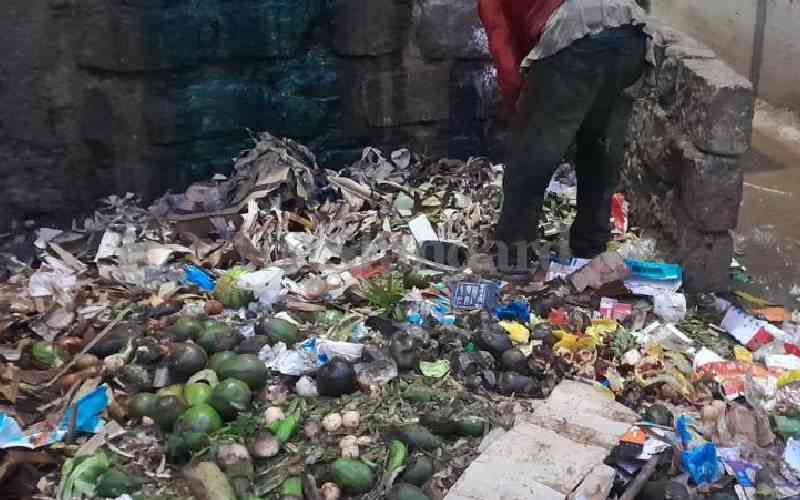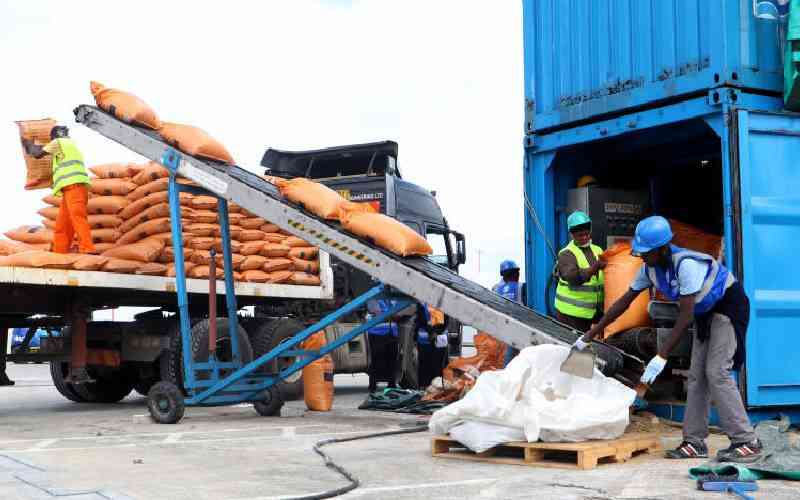
As the country seeks to address food security, Kenyan homes are wasting up to 5,217,367 tonnes of food each year, which equates to 99 kilogrammes of food waste per household.
In the 2023 Global Hunger Index, Kenya is at the 90th position out of 125 countries with available data for calculating the 2023 GHI scores. With a score of 22, Kenya’s hunger level is classified as serious and about 27.8 per cent of Kenya population suffer from inadequate access to food.
According to a report by the Food and Agriculture Organisation (FAO), 40 per cent of all food produced in Kenya goes to waste, which translates to a 10 million metric tonnes of food wasted annually.
“One of the primary forms of food waste in the Kenyan context is post-harvest losses, with an estimated 25 per cent of food produced in the country lost between harvest and market due to inadequate storage facilities, lack of infrastructure, and poor handling practices, the loss occurs across various agricultural sectors, including fruits, vegetables, grains, dairy, and livestock,” the report states.
The FAO report further shows that Kenyan households discard an estimated 15 per cent of their food purchases, with inadequate meal planning, improper storage, and lack of awareness about food preservation techniques being major factors.
Food waste in Kenya has far-reaching implications such as environmental impact. The decomposing food also produces methane gas, a potent greenhouse gas accelerating climate change.
FAO report indicates that in Kenya, the amount of emissions produced by food systems has remained constant in absolute terms from 2010 to 2020, going down slightly from 65.3 to 63.3 MtCO2 eq.
- World Vision launches 'ENOUGH' campaign to tackle hunger, malnutrition in Kenya
- Food security: Kenya's long debate on GMOs far from over
- Nine Kenyan food systems fellows graduate in Addis Ababa
- Hydroponics can ensure food security amid climate change
Keep Reading
These emission has decreased compared to other sectors due to overall economic growth trends, in 2020, food systems emissions still made up a substantial 72 per cent of Kenya’s total national emissions, which is higher than the global average of 31 per cent.
In a recent a report by the United Nation Environment programme (UNEP), Food Waste Index 2024, food loss and waste contribute 8 to 10 per cent of global greenhouse gas emissions annually and it takes up the equivalent of nearly 30 per cent of the world’s agricultural land.
UNEP advocates for collaborative efforts as essential for achieving Sustainable Development Goal (SDG) 12.3, and implementing systemic changes within the global food system through public-private partnerships (PPPs), referred to as ‘voluntary agreements,’ in driving food waste reduction across the food supply chain.
 The Standard Group Plc is a multi-media organization with investments in media platforms spanning newspaper print
operations, television, radio broadcasting, digital and online services. The Standard Group is recognized as a
leading multi-media house in Kenya with a key influence in matters of national and international interest.
The Standard Group Plc is a multi-media organization with investments in media platforms spanning newspaper print
operations, television, radio broadcasting, digital and online services. The Standard Group is recognized as a
leading multi-media house in Kenya with a key influence in matters of national and international interest.











